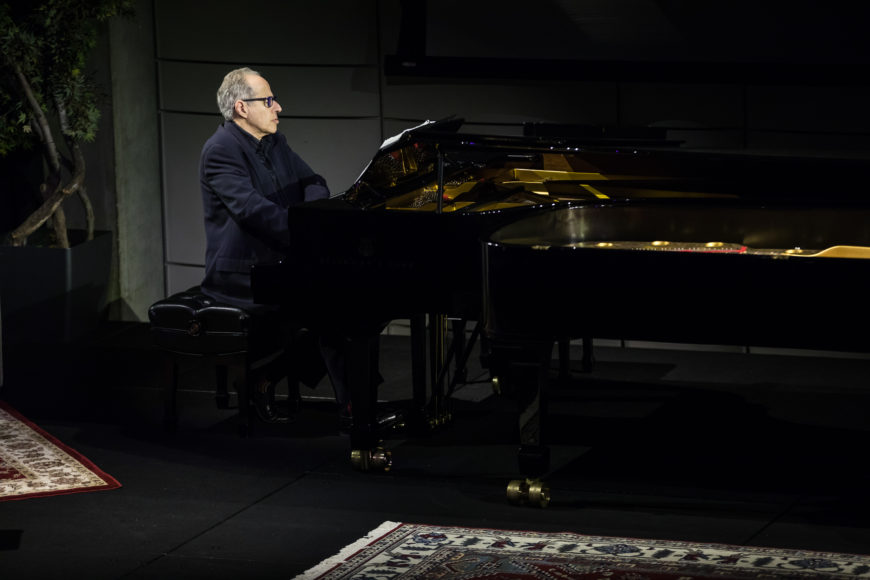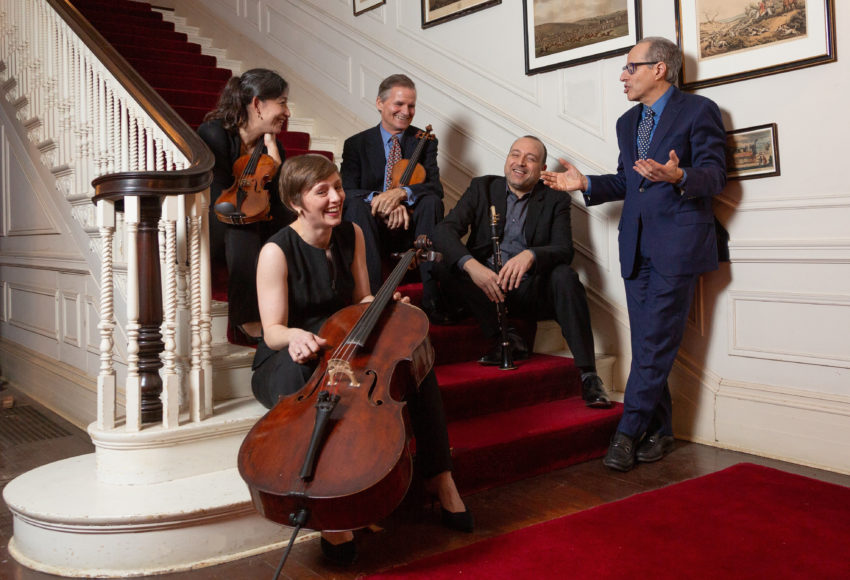One of the “advantages,” if you will, of the Covid crisis is that it has spurred people and institutions to reconsider their identities and goals. That includes Copland House — a center for American music in the former Cortlandt Manor home of composer Aaron Copland, now a National Historic Landmark.
“We had to reexamine ourselves in the short term and on a long-term basis,” says Michael Boriskin, the organization’s artistic and executive director. “(Covid) gave us the opportunity to think about what we were doing and how we interact with the world around us.”
It also reinforced the nonprofit’s need for an additional home for its expanding programs. For a time, Boriskin thought that would be Merestead, a 130-acre estate in Mount Kisco bequeathed to Westchester County in 1982 by Margaret Sloane Patterson — daughter of William Sloane of W. & J. Sloane furniture fame — and her husband, Robert L. Patterson Jr., M.D., with the proviso that the county would develop the place as an historic site after their deaths, buttressed by the interest on a $4 million endowment. In 2009, Copland House partnered with the county to create a retreat for composers there, similar to Yaddo in Saratoga Springs, New York. It was at Merestead that Copland House — having presented concerts in North America for 10 years — started its mainstage series in Westchester, featuring the Music From Copland House ensemble, which can range from two to 13 instrumentalists and vocalists, including pianist Boriskin himself.
After 10 years at Merestead, however, he says the county’s and Copland House’s interests diverged. The county is restoring the 28-room mansion, built in 1907, while Copland House keeps house-hunting.
That’s because Copland House itself, where Copland lived from 1960 until his death in 1990, is a relatively modest 2,500-square-foot dwelling that includes the administrative offices of three full-time employees and three part-time and a composer-in-residence who has the run of the house for three to eight weeks. (Copland House hosts 10 to 12 composers a year singly in this all-expenses-paid program and is open to visitors by appointment.)
“We need a larger structural footprint,” Boriskin says.
Earlier this year, Copland House and the Emelin Theatre, a performing arts venue in Mamaroneck, announced a new partnership showcasing Music From Copland House in a three-concert residency. The series continued May 1 with “Lives Entwined,” plumbing inner and outer lives with “Piano Trio,” a work by the teenage Leonard Bernstein; “Piano Quintet,” Emmy Award winner John Musto’s chamber adaptation of his orchestral “Sinfonietta,” about life and loss; and Gabriela Lena Frank’s “Four Folk Songs for Piano Trio,” in which she once again engages with the traditions of her Peruvian-Chinese-Lithuanian-Jewish ancestry.
The series finale on June 19 is a Juneteenth celebration of Emancipation that borrows its title from a Maya Angelou lyric — “I’ve got a magic charm / That I keep up my sleeve” — for composer Richard Danielpour’s song “Life Doesn’t Frighten Me.” Beginning with Harry Burleigh, a late-19th-century pioneer of Black spirituals, the concert explores the multidisciplinary world of the Harlem Renaissance and hails 20th- and 21st-century composers William Grant Still, Tania Leon and Shawn Okpebholo.
With acclaimed performances at The Kennedy Center in Washington, D.C. and the Art Institute of Chicago, among other venues, Music From Copland House “redefines what it is to listen to fine music in the 21st-century,” observed the District Fray.
Part of that redefinition is a diversification that has brought contemporary composers — particularly women and people of color — into a conversation with the titans of music history.
“One of my long-standing problems with the concert world is the use of the word ‘classical’ to represent the whole field,” Boriskin says. “If you’re just reflecting the past, then you’re not diverse by definition….We’ve always defined American music as broadly as possible.”
The programs at the Emelin represent a return to live concertizing in Westchester after a more-than-two-year Covid hiatus that has seen a rolling comeback for Copland House’s offerings since its March 8, 2020 concert at the John Jay Homestead in Katonah. The composer-in-residence program, which has only one composer at a time, was the first to return in the fall of 2020. A year later, the ensemble resumed out-of-town concerts. Copland House’s educational outreach resumes this fall.
“We took a very big hit,” Boriskin says. “We lost essentially all of our earned income.”
The organization — which he says makes the most of its $600,000 operating budget — balanced those losses with virtual programming, individual and foundation help but especially government support, “local, state and federal. Hats off to ArtsWestchester and (the federal government’s) CARES Act and (New York state’s) Restart and Recovery.”
Navigating all this is a man who has been serious about music since he was a 6-year-old piano student, growing up on Long Island and attending public schools there. He graduated from Juilliard and the City University of New York. But along with an international career as a concert pianist, Boriskin was also interested in arts administration, working with National Public Radio (NPR) as creator and co-host of its “CenturyView” series and serving as music director for Mikhail Baryshnikov’s White Oak Dance Project.
When a group sought to save Copland’s home in the ’90s, Boriskin thought he’d offer some advice and move on. Almost a quarter-century later, he says, “I’m still here.”
The Music From Copland House’ ensemble performs at 4 p.m. June 19 at the Emelin Theatre in Mamaroneck. The concert is one hour without intermission and includes a post-concert talk with the artists. Tickets are $45 and $35 and are available at emelin.org or 914-698-0098. For more, visit coplandhouse.org.






